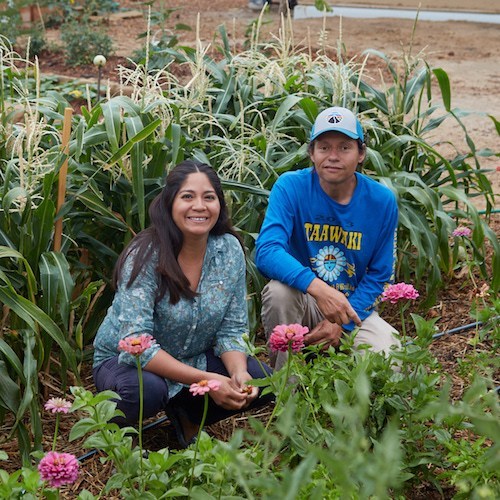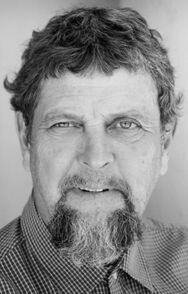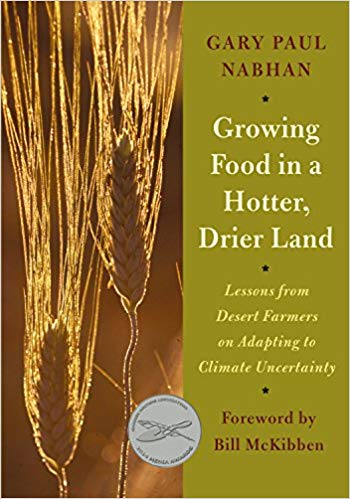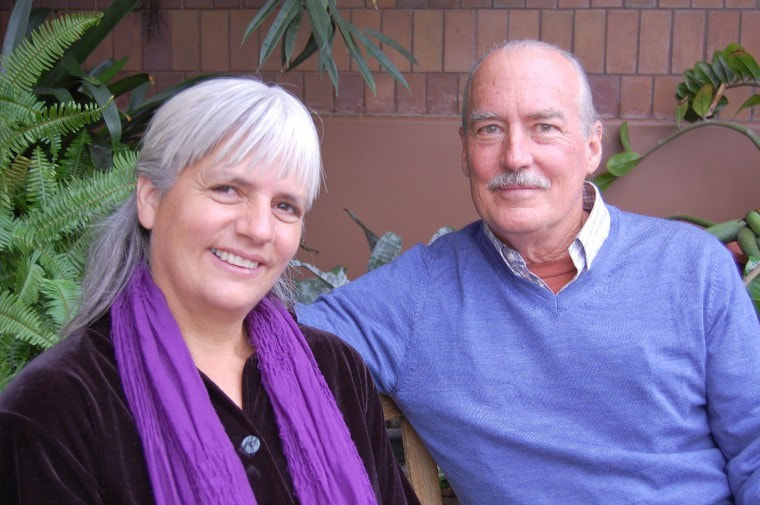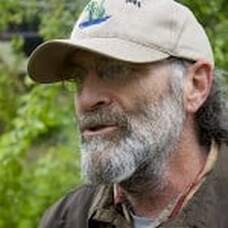Northern Arizona University
Master of Sustainable Communities
Permaculture Design Course
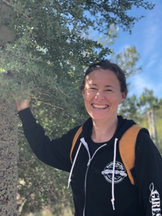
SUS 599: Special Topics (#9692)
Introduction to Permaculture
In person, 3-credits
Fall 2019
Thursdays 2:20-4:50
Fieldtrip- Colton Garden PermaBlitz: October 5th 8:30am-3:00 pm
Calling all aspiring gardeners, designers and community organizers! Discover how growing food and community can serve as a vehicle for transformation—for the self, community, and the land. Introduction to Permaculture is the first in a two-part series that offers the opportunity for students to receive their 72-hour Permaculture Design Certificate. This three-credit course offers a foundation in permaculture history, ethics, principles, design process, and practical applications. The framework behind the theory and practice of permaculture is rooted in the observation of natural systems. By observing key ecological relationships, we can mimic and apply these beneficial relationships in the design of systems that serve humans while helping to restore the natural world. This course trains students as critical thinkers, observers, and analysts of the world around them, and then goes on to provide students with the tools needed to design for inspired and positive change.
Course override available for undergraduates to be able to attend this graduate-level course
SUS 599: Special Topics (#2211)
Permaculture Design and Practice
In person & online
3-credits
Tucson- March 7, 6:30am- March 9, 6:00 pm
Hopi Tutskwa Permaculture Institute- March 27, 12:00 pm- March 29, 5:00 pm
Flagstaff Design Weekend- April 24, 5:00 pm- April 26, 4:00 pm
SUS 599 Permaculture Design and Practice is the second in a two-part series that offers the opportunity for students to receive their 72-hour Permaculture Design Certificate. This three-credit course applies the principles of permaculture in practice through design process and techniques. The course culminates with students developing a a permaculture design and community installation at the Museum of Northern Arizona’s Colton Community Garden. Please note that this course takes place over a series of Friday evenings/Saturdays.
Course override available for undergraduates to be able to attend this graduate-level course
Pre-requisite: SUS 599 Introduction to Permaculture (or consent of the instructor)
NAU Course fee required: $100.00
Northern Arizona Faculty:
Rosemary Logan
Dr. Rosemary Logan is faculty at Northern Arizona University (NAU), teaching for the First-Year Seminar and Masters of Sustainable Communities Program. Her teaching for the last seven years has focused on school and community gardens, place-making and community-based learning. Over the years she has continued to integrate permaculture design principles and practices further into her teaching, including designing and co-leading two study abroad programs focused on permaculture to Scotland (2016) and New Zealand (2019). In 2011 she received her Permaculture Design Certificate (PDC) from Wayne Weissman, and in December 2017 her Permaculture Teacher Training certificate from Pandora Thomas and Lisa DePiano. Most recently she attended the Central Rocky Mountain Permaculture’s Institute’s annual PDC to continue design work with a team from the Museum of Northern Arizona’s Colton Community Garden. Rosemary’s deepest passions within permaculture are centered on native and medicinal plants, building community, the intersections between biological and cultural diversity, and creating spaces for transformation/transformative learning. Rosemary and her husband Ethan Aumack, live with their two vivacious daughters in a passive solar home they built (with a whole lot of support from their community) on McMillan Mesa in Flagstaff, Arizona.
Introduction to Permaculture
In person, 3-credits
Fall 2019
Thursdays 2:20-4:50
Fieldtrip- Colton Garden PermaBlitz: October 5th 8:30am-3:00 pm
Calling all aspiring gardeners, designers and community organizers! Discover how growing food and community can serve as a vehicle for transformation—for the self, community, and the land. Introduction to Permaculture is the first in a two-part series that offers the opportunity for students to receive their 72-hour Permaculture Design Certificate. This three-credit course offers a foundation in permaculture history, ethics, principles, design process, and practical applications. The framework behind the theory and practice of permaculture is rooted in the observation of natural systems. By observing key ecological relationships, we can mimic and apply these beneficial relationships in the design of systems that serve humans while helping to restore the natural world. This course trains students as critical thinkers, observers, and analysts of the world around them, and then goes on to provide students with the tools needed to design for inspired and positive change.
Course override available for undergraduates to be able to attend this graduate-level course
SUS 599: Special Topics (#2211)
Permaculture Design and Practice
In person & online
3-credits
Tucson- March 7, 6:30am- March 9, 6:00 pm
Hopi Tutskwa Permaculture Institute- March 27, 12:00 pm- March 29, 5:00 pm
Flagstaff Design Weekend- April 24, 5:00 pm- April 26, 4:00 pm
SUS 599 Permaculture Design and Practice is the second in a two-part series that offers the opportunity for students to receive their 72-hour Permaculture Design Certificate. This three-credit course applies the principles of permaculture in practice through design process and techniques. The course culminates with students developing a a permaculture design and community installation at the Museum of Northern Arizona’s Colton Community Garden. Please note that this course takes place over a series of Friday evenings/Saturdays.
Course override available for undergraduates to be able to attend this graduate-level course
Pre-requisite: SUS 599 Introduction to Permaculture (or consent of the instructor)
NAU Course fee required: $100.00
Northern Arizona Faculty:
Rosemary Logan
Dr. Rosemary Logan is faculty at Northern Arizona University (NAU), teaching for the First-Year Seminar and Masters of Sustainable Communities Program. Her teaching for the last seven years has focused on school and community gardens, place-making and community-based learning. Over the years she has continued to integrate permaculture design principles and practices further into her teaching, including designing and co-leading two study abroad programs focused on permaculture to Scotland (2016) and New Zealand (2019). In 2011 she received her Permaculture Design Certificate (PDC) from Wayne Weissman, and in December 2017 her Permaculture Teacher Training certificate from Pandora Thomas and Lisa DePiano. Most recently she attended the Central Rocky Mountain Permaculture’s Institute’s annual PDC to continue design work with a team from the Museum of Northern Arizona’s Colton Community Garden. Rosemary’s deepest passions within permaculture are centered on native and medicinal plants, building community, the intersections between biological and cultural diversity, and creating spaces for transformation/transformative learning. Rosemary and her husband Ethan Aumack, live with their two vivacious daughters in a passive solar home they built (with a whole lot of support from their community) on McMillan Mesa in Flagstaff, Arizona.
MARCH 27-29: HOPI TUTSKWA PERMACULTURE INSTITUTE
Weekend course emphasis: indigenous knowledge, building soil, heirloom orchards/guilds & seed starting
Instructors-
Lilian Hill
Executive Director, Hopi Tutskwa Permaculture Institute
Lilian leads the Hopi Tutskwa Permaculture Institute as Executive Director with a focus on growing HTPI's impact locally, regionally, and internationally. Lilian, along with her husband Jacobo, founded HTPI in 2004 as a way to develop community leadership and to provide opportunities for the Hopi community to develop
sustainable solutions to the problems that exist on the Hopi reservation. In 2001, Lilian founded the Black Mesa Water Coalition, an organization working to address energy and water exploitation on the Navajo and Hopi Reservations. Lilian has traveled to Italy, Africa, India, Tajikistan, and Mexico learning, sharing her work, and promoting community sustainability models developed by HTPI. She has studied at the North American School of Natural Building and Northern Arizona University, focusing on Applied Indigenous Studies and Traditional Ecological Knowledge. Lilian is a Certified Permaculture Designer and Natural Builder. Lilian is a member of the Tobacco clan and she lives in Kykotsmovi Village along with her husband and children in their hand-built Passive Solar Home. In her free time she writes poetry, prepares delicious meals using locally grown fruits and vegetables, chases chickens and turkeys, runs sandy trails, and enjoys spending time with her family and friends.
www.hopitutskwa.org
Jacobo Marcus-Karanza
Program Director, Hopi Tutskwa permaculture Institute
Jacobo is a father, farmer, bee-keeper, teacher, natural builder and musician. Jacobo is a Certified Orchard-Keeper and Certified Permaculture Designer who works in collaboration with many farmers, youth, schools and community members to plant fruit tree orchards and to help restore the supply of fresh fruit and food within the Hopi villages and schools. Jacobo has a B.A. in Music and has attended many trainings and workshops in permaculture design, orchard restoration, bee-keeping, grey water/rainwater harvesting and natural building. Jacobo enjoys working with the Hopi community, caring for bees and fruit trees, spending time with his family, and playing music.
www.hopitutskwa.org
Weekend course emphasis: indigenous knowledge, building soil, heirloom orchards/guilds & seed starting
Instructors-
Lilian Hill
Executive Director, Hopi Tutskwa Permaculture Institute
Lilian leads the Hopi Tutskwa Permaculture Institute as Executive Director with a focus on growing HTPI's impact locally, regionally, and internationally. Lilian, along with her husband Jacobo, founded HTPI in 2004 as a way to develop community leadership and to provide opportunities for the Hopi community to develop
sustainable solutions to the problems that exist on the Hopi reservation. In 2001, Lilian founded the Black Mesa Water Coalition, an organization working to address energy and water exploitation on the Navajo and Hopi Reservations. Lilian has traveled to Italy, Africa, India, Tajikistan, and Mexico learning, sharing her work, and promoting community sustainability models developed by HTPI. She has studied at the North American School of Natural Building and Northern Arizona University, focusing on Applied Indigenous Studies and Traditional Ecological Knowledge. Lilian is a Certified Permaculture Designer and Natural Builder. Lilian is a member of the Tobacco clan and she lives in Kykotsmovi Village along with her husband and children in their hand-built Passive Solar Home. In her free time she writes poetry, prepares delicious meals using locally grown fruits and vegetables, chases chickens and turkeys, runs sandy trails, and enjoys spending time with her family and friends.
www.hopitutskwa.org
Jacobo Marcus-Karanza
Program Director, Hopi Tutskwa permaculture Institute
Jacobo is a father, farmer, bee-keeper, teacher, natural builder and musician. Jacobo is a Certified Orchard-Keeper and Certified Permaculture Designer who works in collaboration with many farmers, youth, schools and community members to plant fruit tree orchards and to help restore the supply of fresh fruit and food within the Hopi villages and schools. Jacobo has a B.A. in Music and has attended many trainings and workshops in permaculture design, orchard restoration, bee-keeping, grey water/rainwater harvesting and natural building. Jacobo enjoys working with the Hopi community, caring for bees and fruit trees, spending time with his family, and playing music.
www.hopitutskwa.org
|
MARCH 6-8 TUCSON, PATAGONIA & CANELO
Weekend course emphasis: rainwater harvesting, desert guilds, arid lands farming and introduction to clay plastering Instructors- Dr. Gary Paul Nabhan Gary Nabhan is an agricultural ecologist, ethnobotanist, author or editor of award-winning books and the cofounder of the Native Seeds SEARCH organization. He has been honored for his far-reaching applied research on agrobiodiversity, his community service and his prolific science writing. His work has been supported by the prestigious MacArthur and Kellogg Foundations, to name but a few. In addition to his many academic accomplishments, Gary farms 150 varieties of fruit, nut and spice crops dating from the Spanish mission era and from the Middle East homelands of his Lebanese ancestors-- plants that have successfully adapted to arid climate. Check out Gary’s most recent & important book: “Growing Food in Hotter, Dryer Land” |
Bill & Athena Steen
The Canelo Project is a small non-profit organization, that we, Bill and Athena Steen founded in 1989 and whose work centers on the theme – Connecting People, Culture and Nature. The small town of Canelo, in southeastern Arizona, is home to The Canelo Project and the center of many of our activities . We rebuilt the old adobe ranch house and complex of buildings to function as a place where people of different backgrounds and cultures could come together to share in an ongoing exploration of living, building, the arts, music and regional foods. We have developed it as a center for learning, research, demonstration and cross-cultural gatherings. Our ongoing annual activities revolve around workshops, tours, intern programs and writing. The focal point of our work is handcrafting simple, small-scale and comfortable shelter that is built primarily with local and natural materials. In that pursuit, we have evolved a unique straw bale and clay wall system that is finished with beautiful clay and lime plasters, sculptural wall carvings, earthen floors and clay ovens. We, Bill and Athena Steen, as the founding directors of The Canelo Project, have also taught and worked extensively in Mexico, taught workshops and lectured throughout Europe and the United States. We have also become increasingly involved in museum art projects that include the Smithsonian’s National Museum of the American Indian in Washington D.C., the National Botanical Gardens – Washington D.C., the Denver Art Museum, the Ceramic Research Center – Arizona State University and the Minnesota Landscape Arboretum. Check out Bill & Athena’s beautiful and informative books: “The Strawbale House” and “Small Strawbale.” www.caneloproject.com |
APRIL 24-26, FLAGSTAFF DESIGN WEEKEND
Weekend course emphasis: base mapping, sector analysis, client interviews and conceptual design work
Wayne Weisman
Wayne Weiseman is a permaculture teacher, designer, consultant and author. He lives in Carbondale, Illinois with his wife, Frances and daughter, Halima. He was certified to teach permaculture by Bill Mollison, the founder of permaculture, in 1999. Wayne has taught hundreds of Permaculture Design Courses around the world. He has served as a consultant and lecturer to educators, school administrators, business leaders, and others internationally. For 15 years Wayne managed a land-based, self-reliant community project combining organic crop/food production, ecologically-built shelter, renewable energy and appropriate technologies.
Wayne is a co-author of an authoritative book on integrated forest gardening and plant guilds that was published in August, 2014: Integrated Forest Gardening: The Complete Guide to Polycultures and Plant Guilds in Permaculture Systems and through it’s publisher, Chelsea Green Publishing – IFG.
www.permacultureskillscenter.org
Weekend course emphasis: base mapping, sector analysis, client interviews and conceptual design work
Wayne Weisman
Wayne Weiseman is a permaculture teacher, designer, consultant and author. He lives in Carbondale, Illinois with his wife, Frances and daughter, Halima. He was certified to teach permaculture by Bill Mollison, the founder of permaculture, in 1999. Wayne has taught hundreds of Permaculture Design Courses around the world. He has served as a consultant and lecturer to educators, school administrators, business leaders, and others internationally. For 15 years Wayne managed a land-based, self-reliant community project combining organic crop/food production, ecologically-built shelter, renewable energy and appropriate technologies.
Wayne is a co-author of an authoritative book on integrated forest gardening and plant guilds that was published in August, 2014: Integrated Forest Gardening: The Complete Guide to Polycultures and Plant Guilds in Permaculture Systems and through it’s publisher, Chelsea Green Publishing – IFG.
www.permacultureskillscenter.org
Flagstaff community members and non-credit-seeking students are welcome to join this two-semester class. To register, contact Ginger Christenson at [email protected]. The cost to register for both semesters is $500/semester or $1,000. A limited number of spots are available for the spring semester, only. The cost for the spring semester only is $650.
For questions about the course curriculum please contact Rosemary Logan directly at [email protected]
For questions about the course curriculum please contact Rosemary Logan directly at [email protected]
